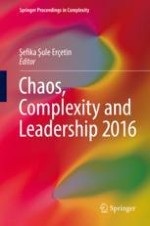2018 | OriginalPaper | Buchkapitel
9. Talent Management Practices A Trajectory and Ingenuity in Higher Education Institutions: A Meta-analysis Review of Literature
verfasst von : Farooq Miiro, Azam Otham
Erschienen in: Chaos, Complexity and Leadership 2016
Aktivieren Sie unsere intelligente Suche, um passende Fachinhalte oder Patente zu finden.
Wählen Sie Textabschnitte aus um mit Künstlicher Intelligenz passenden Patente zu finden. powered by
Markieren Sie Textabschnitte, um KI-gestützt weitere passende Inhalte zu finden. powered by
